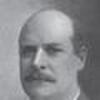Ernest Shackleton (1874–1922)
Author of South: The Endurance Expedition
About the Author
Disambiguation Notice:
Please do not combine this author page with the E. H. Shackleton author page, (as there is another author called E. H. Shackleton), nor with any form of the name Lord Shackleton, as that refers to Ernest's son Edward.
Image credit: Courtesy of the NYPL Digital Gallery (image use requires permission from the New York Public Library)
Works by Ernest Shackleton
A Déli Sark hajótöröttjei 3 copies
South Polar Times 3 copies
Shackleton in the Antarctic 3 copies
The Antarctic Exploration Anthology: The Personal Accounts of the Great Antarctic Explorers (Bybliotech Discovery Book… (2013) 2 copies
South 1 copy
Sur-Relato de la Expedición del Endurance 1914 a 1917: La historia de supervivencia más grande jamás contada (Leer y… (2012) 1 copy
Associated Works
The Ends of the Earth: An Anthology of the Finest Writing on the Arctic and the Antarctic (2007) — Contributor — 128 copies, 7 reviews
The Greatest Sailing Stories Ever Told: Twenty-Seven Unforgettable Stories (2002) — Contributor — 78 copies
Classic Survival Stories: Thirteen Tales of Strength, Determination, and the Will to Live (2004) 18 copies
Stories of the Sea — Contributor — 4 copies
Tagged
Common Knowledge
- Legal name
- Shackleton, Sir Ernest Henry
- Other names
- Shackleton, Sir Ernest
- Birthdate
- 1874-02-15
- Date of death
- 1922-01-05
- Burial location
- Norwegian Cemetery, Grytviken, South Georgia
- Gender
- male
- Nationality
- UK
- Country (for map)
- Ireland
- Birthplace
- Kilkea, County Kildare, Ireland, UK
- Cause of death
- atheroma of the coronary arteries
- Places of residence
- County Kildare, Ireland, UK
Dublin, Ireland, UK
Sydenham, England, UK
Edinburgh, Scotland, UK
London, England, UK - Education
- Dulwich College, London
- Occupations
- Antarctic explorer
mercantile marine
Lieutenant, Royal Naval Reserve
Major, British Army
Master Mariner
journalist (show all 7)
public lecturer - Relationships
- Leadbeater, Mary (great-greataunt)
Shackleton, Edward (son - Lord Shackleton) - Organizations
- British Army
Royal Navy Reserves
National Antarctic Expedition
Royal Scottish Geographical Society
British Antarctic Expedition
Imperial Trans-Arctic Expedition (show all 8)
North Russia Expeditionary Force
Shackleton-Rowlett Expedition - Awards and honors
- Royal Victorian Order, 4th class (1907), Commander (1909)
Knighthood (1909)
Polar Metal ( [1904, 1909, 1917])
Vega Medal (1910)
Royal Geographical Society, Gold Medal (1909)
Order of the British Empire (1919) - Short biography
- Wrote "O.H.M.S. An Illustrated Record of the Voyage of S.S. Tintagel Castle" as a young man. Served under Scott on Discovery on the British National Antarctic Expedition and accompanied Scott to attain the then furthest south. Attained a new furthest south, commanding his own expedition in the Nimrod, and recorded his experiences in "The Heart of the Antarctic" and edited and contributed to a book printed in the Antarctic "Aurora Australis". His best known expedition was to be a transcontinental traverse of Antarctica but his ship, the Endurance, was crush in the ice and he never made landfall. He and his men lived on ice floes and eventually took a perilous journey in small boats to make landfall. Shacklton then led a much smaller party in a single small boat through the roughest seas on earth and crossed an uncharted mountainous island to reach help. His record of this epic struggle for survival is presented in his book "South".Served as an officer under Captain Scott on the Discovery expedition (British National Antarctic Expedition) in which he accompanied Scott to the then furthest south. Organized his own expedition on the ship Nimrod and attained a new furthest south record and his story of the expedition was published as "The Heart of the Antarctic." Then, after Scott died on his return trip from the south pole, Shackleton organized his best known expedition on the Endurance to attempt a first transcontinental crossing of Antarctica. The Endurance was crushed in the polar ice, he never reached land, but he brought his men through a brutal and dangerous test of endurance living on ice floes. Eventually he survived an epic small boat trip through the roughest seas on earth and a crossing of uncharted mountains to bring help to his stranded men and tells his tale in the book "South." Also edited and contributed to "Aurora Austrialis" printed in the Antarctic and as a young man wrote "O.H.M.S. An Illustrated Record of the Voyage of S.S. 'Tintagel Castle'.
- Disambiguation notice
- Please do not combine this author page with the E. H. Shackleton author page, (as there is another author called E. H. Shackleton), nor with any form of the name Lord Shackleton, as that refers to Ernest's son Edward.
Members
Discussions
New LE: Aurora Australis in Folio Society Devotees (March 2022)
The Endurance (Ernest Shackleton's 1912 trip to the Antarctic) in Legacy Libraries (January 2021)
Reviews
Lists
Awards
You May Also Like
Associated Authors
Statistics
- Works
- 27
- Also by
- 10
- Members
- 2,610
- Popularity
- #9,844
- Rating
- 4.0
- Reviews
- 54
- ISBNs
- 185
- Languages
- 8
- Favorited
- 1















The Imperial Trans-Antarctic Expedition of 1915-18 ended in failure, but gloriously documented failure. Ernest Shackleton planned to lead a party across Antartica via the South Pole, from the Weddell Sea south of the Atlantic to the Ross Sea south of the Pacific, to meet up with a second group based there. Disaster struck; both ships got stuck in the ice and were eventually destroyed; Shackleton led his own crew to precarious shelter on Elephant Island, off the Antarctic coast, and then undertook a 1300 km journey in an open boat to South Georgia to secure rescue; amazingly, all of the Weddell Sea group survived. (All of the humans, that is; the dogs and the ship’s cat were not so lucky.) Another rescue party then had to go and find the Ross Sea party, three of whom had died in the meantime. They returned to civilisation to find that the war, which had broken out just before their departure with promises that it would end quickly, was still raging, and most of the expedition members dispersed to join the forces.
The 100th anniversary edition of Shackleton’s expedition report is beautifully illustrated with the many photographs taken on the spot, including the poignant moment when the Edncurance slipped below the ice of the Weddell Sea (to be found 106 years later). Shackleton’s diaries, always intended for publication, are vivid about the difficulties faced by his group, and the extraordinary challenges of the punishing environment. The Ross Sea group’s records are less detailed, and it’s pretty clear that Aeneas Mackintosh, the leader, lost his nerve at quite an early stage, and eventually died in a futile attempt to cross the ice of McMurdo Sound. But these were very tough circumstances.
What really struck me was the confidence that Shackleton in particular had about navigation. The South Pole is really just a dot on the map, but he was sure that if he had landed he would find it, and there was no doubt in his mind that he would find the Ross Sea team once he crossed the continent. He writes of supply depots left by previous expeditions that he locates and uses. In particular, I’m stunned by the navigational feat of finding South Georgia in the vast ocean.
One does have to wonder what it was all for? The scientific advances made were minimal, and the expenditure of resources huge, not to mention the fact that lives were lost. Fifty years later, the space race attracted greater resources and press coverage, but one senses the same kind of drive for exploration behind it. Shackleton himself died on South Georgia in the early stages of another expedition in 1922 aged 47, of a heart attack brought on by stress. I guess the story of the expedition, doomed as it was, is a compelling record anyway.… (more)